I love my solitude... but I'm meant to be a lover
- New Afro

- Jul 17, 2024
- 4 min read
Updated: Oct 8, 2024

An exhibition featuring the work of the talented French-Ivorian artist NÉO, delving into the topic of mental health curated by Chéria Essieke at Kulturbäckerei e.V Mainz.
Painting: Néo (b.2000)
Horizons Infini, 2023
Mixte media
70 x 100 cm
Ring the alarm! A text by Chéria Essieke
“How Depression Has Never Been an African Disease” this was the title the Kenyan famous journalist and humorist Ted Malanda gave to an article he published in a newspaper in Kenya in 2014, shortly after the American famous actor Robin Williams died, after committing suicide. Malanda posited in that article that “committing suicide because you are suffering from depression is simply not African.” By doing so, he totally denies that depression exists in Africa. He goes far by saying that: “I understand a man hanging himself because his wife left him, he's unemployed, the neighbor bewitched him, or he was caught kissing his mother-in-law. But committing suicide because of depression is simply not African." Thus, for him, suicide could be understood or "excused" only under certain conditions, depending on the "severity" of the reason. This severity would be legitimized or judged by society.
These thoughts are far from being those of a minority; rather, they are shared by many people in African societies. "Le fou" (the madman) and "la folle" (the madwoman) are terms frequently used to describe individuals suffering from mental disorders. These individuals are misunderstood by society, marginalized, dehumanized, left to their own devices, scorned, and sometimes subjected to ridicule or pity.
In the streets of big African cities such as Cotonou, Abidjan, and Brazzaville, I’ve often witnessed this disdain or abandonment of these individuals by their societies or the existing systems. Lacking places to take shelter, they create makeshift homes under bridges, in unsanitary conditions, in remote areas, in darkness, abandoned, and sometimes without clothing.
Misunderstood, the causes of mental disorders are believed by some to be mystical in nature. To support this belief, there is always a story from the neighbor "tonton" (uncle) or "tata" (aunt).
In recent years, there has been a growing interest and necessity to confront the taboo, ignorance, and need to shed light on mental illnesses. The reasons for this awareness and action are manifold. The French online newspaper Le Monde published World Health Organization (WHO) statistics in 2022 indicating that the African continent has the highest suicide rate in the world. This is partly explained by the underinvestment of African states in the care and prevention of mental illnesses. According to the international organization, African states allocate an average of $0.46 per capita for mental health care, "well below the $2 per capita recommended for low-income countries" (Le Monde 2022).
Despite this awareness, mental illnesses remain a taboo subject in many African societies, while human relationships, in general, are often the subject of debate, conversation, and interest. For example, many songs (to take the example of music) speak of love, brotherhood, and friendship. This awareness, this awakening of a youth that points fingers, rings the bell, lives with its realities, in its time, uncomplexed, even if sometimes lost in an identity struggle, passes through the intercultural medium of expression that is ART!
This is the case for Néo, an artist in her twenties who observes the society in which she lives, questions it, and questions herself. Her caricatures depict a state of mind, a state of soul. The bright colors such as red, violet, and yellow, often in the background, conceal questions about human relationships and the relationship with oneself. These questions are often considered of lesser importance. For example, in the series "Emotional Support, 2022" the painting "Hold On" is an invitation not to give up and caricatures the pressure that society can sometimes exert on us. The bright colors capture attention.
In her most recent series of paintings, "I love my solitude... but I’m meant to be a lover" the artist makes peace with her environment. The background colors are less bright, more subdued, and the presence of other living beings such as plants or a cat transports us to a more peaceful universe.
This exhibition aims to be a dialogue between the old self and the new self. These caricatures prompt us to ask whether the realities of our societies, the ignorance, and our judgments towards those who often suffer in silence, are really that different. Why do we often struggle to recognize our weaknesses? To admit that we need help? To ask for help? What is the real impact of our cultures on our perception of mental health and human relationships? Are we really doing enough to combat the stigma of mental health issues?
During almost 1 week (from 20.06 until 26.06), Néo and the New Afro team engaged the audience in a meaningful discussion, fostering interactions that bridged generations and encouraged reflection on mental health. This dialogue, enriched by interactions with the public, delved into Néo’s journey from depicting pain and depression to embracing peace and vitality. Together, we explored how her African backgrounds influenced her artistic expression and addressed the stigma surrounding mental health in African societies and cultures.
We thank every single person, who visited the exhibition and the Kulturbäckerei e.V initiative for this collaboration.
Exhibition insights :
Credits: Pictures by Maria Bayer (New Afro)
Exhibition: I love my solitude...but I'm meant to be a lover in collaboration with Kulturbäckerei e.V , Mainz 2024.














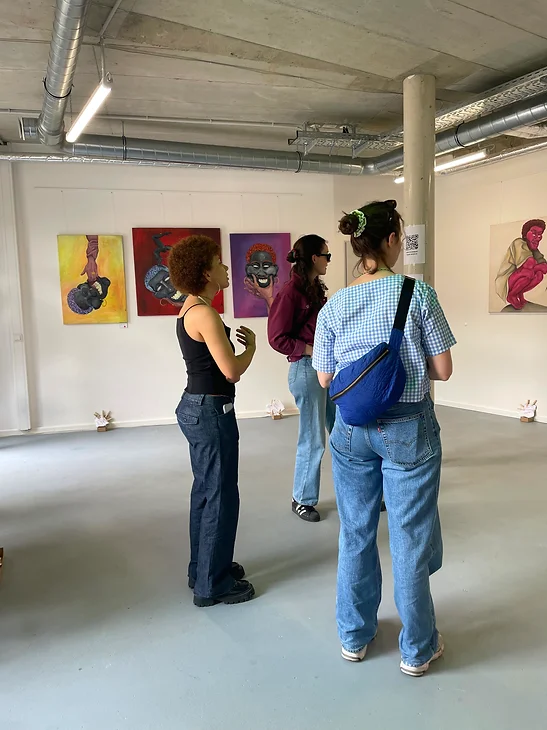

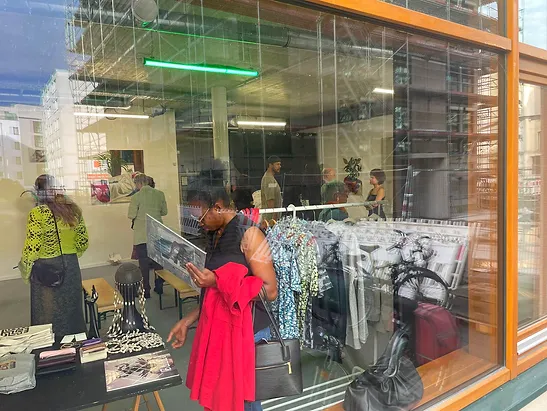
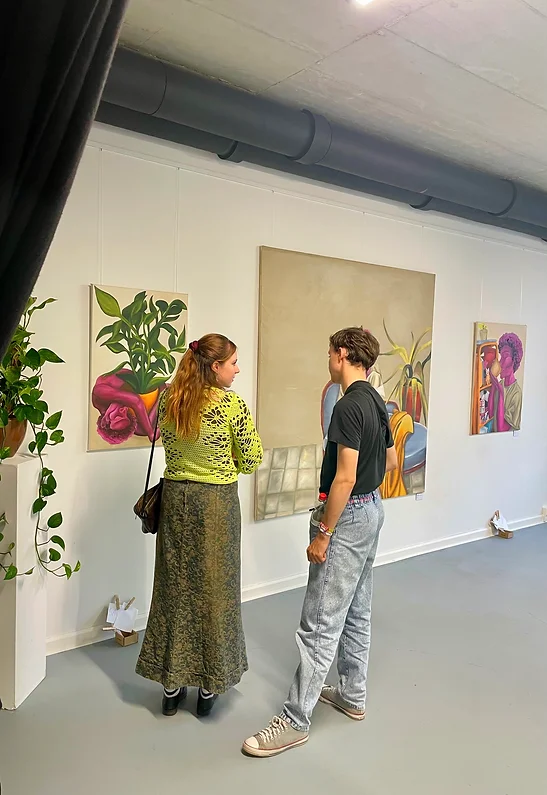
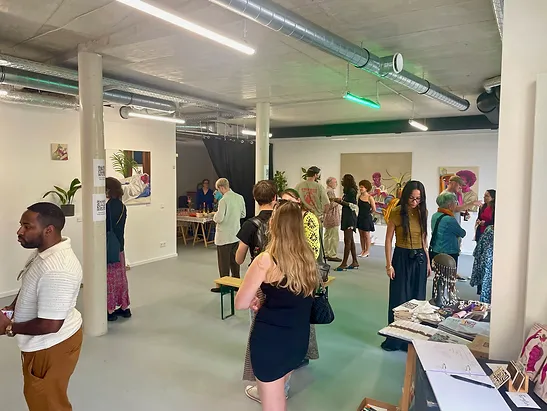
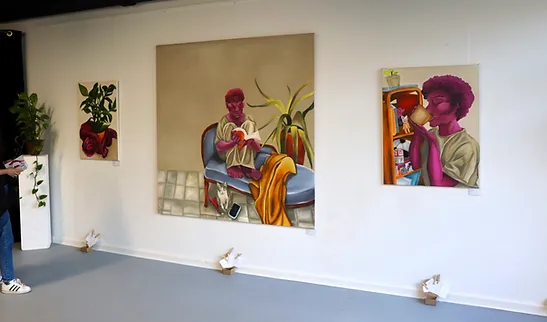
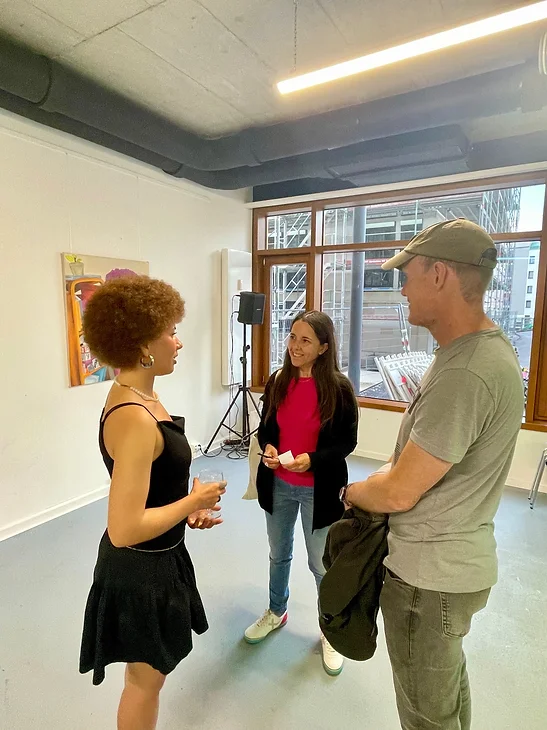
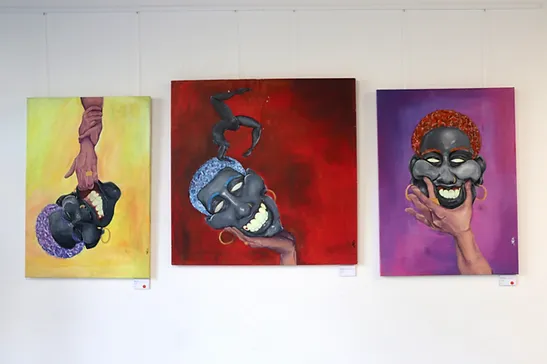
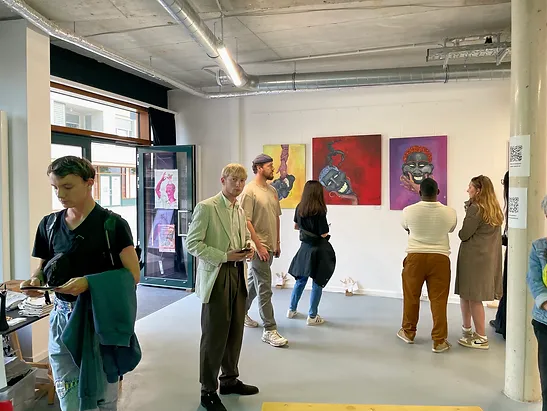
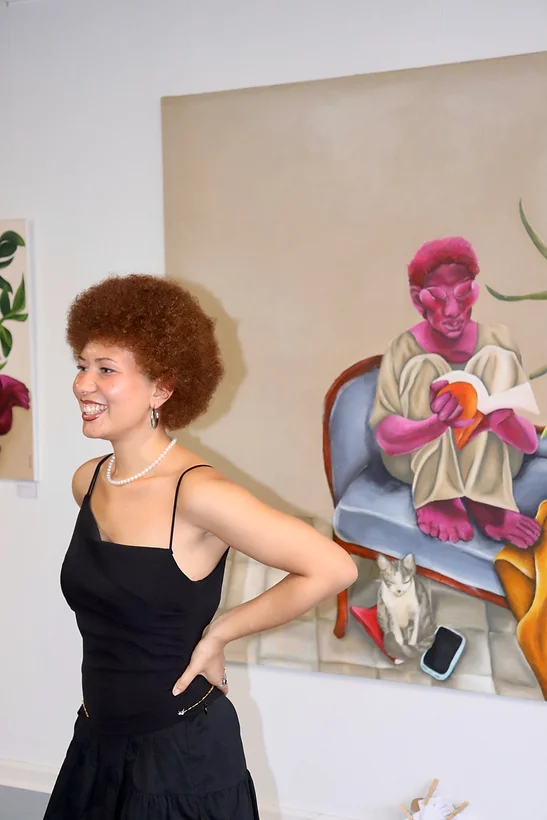
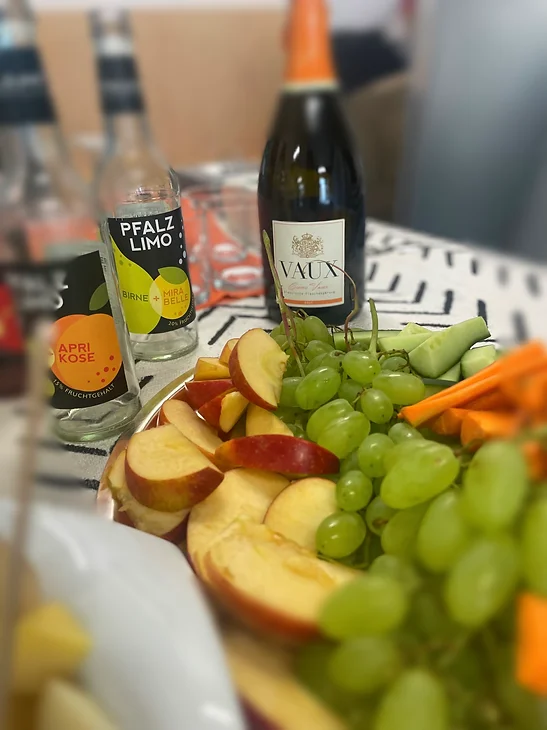




Comments